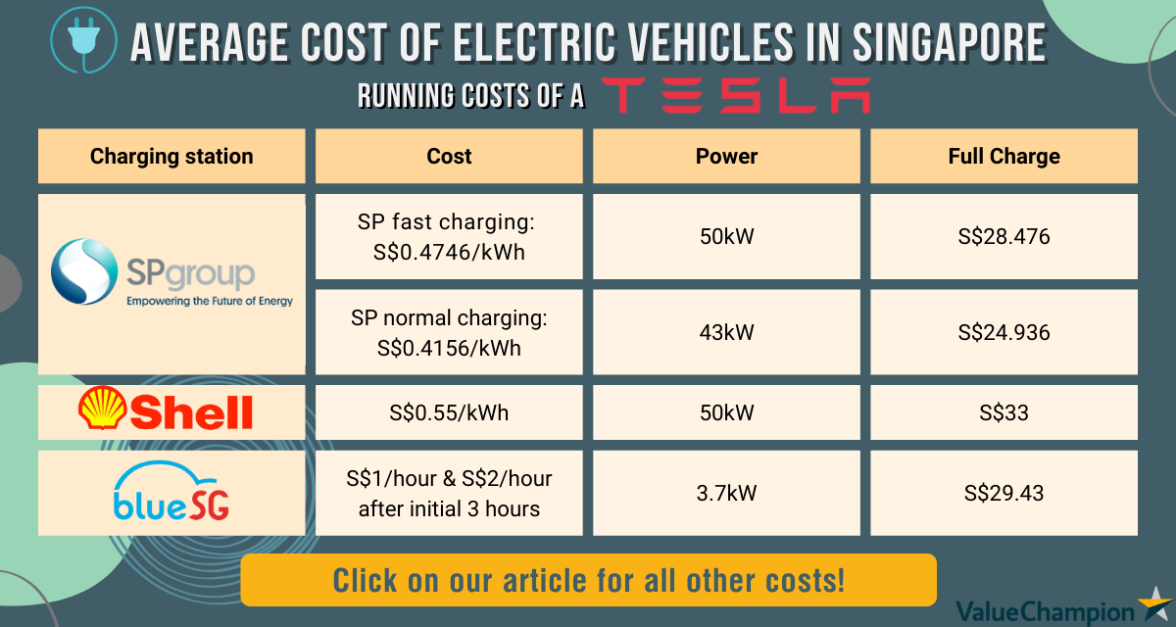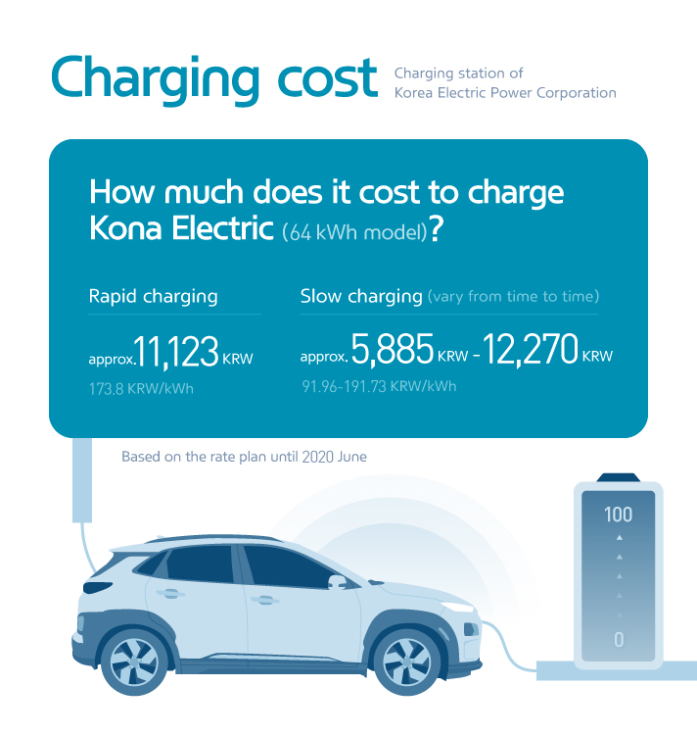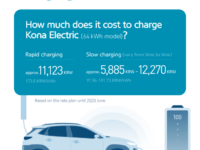Unveiling the Hidden Costs
Electric Cars have become increasingly popular in recent years as people seek to reduce their carbon footprint and save money on fuel costs. However, many potential buyers may not be aware of the hidden costs associated with owning an electric vehicle. In this article, we will delve into the shocking truth about how much it really costs to charge an electric car.

Image Source: cloudinary.com
One of the most surprising hidden costs of owning an electric car is the expense of installing a Home charging station. While it is possible to charge an electric car using a standard household outlet, this method is slow and inefficient. To truly take advantage of the benefits of owning an electric vehicle, most owners opt to install a dedicated charging station in their home. These stations can cost anywhere from $500 to $2000, depending on the brand and features.
In addition to the cost of the charging station itself, there are also installation costs to consider. Many homeowners will need to hire an electrician to properly install the charging station, which can add hundreds of dollars to the overall cost. Some homes may also require upgrades to their electrical system in order to accommodate the increased power load of charging an electric car.

Image Source: medium.com
Another hidden cost of owning an electric car is the price of electricity. While it is generally cheaper to charge an electric car than to fuel a gas-powered vehicle, the cost of electricity can vary significantly depending on where you live. In some areas, electricity rates may be much higher than the national average, which can add up over time.
One factor that many people overlook when considering the cost of charging an electric car is the efficiency of the vehicle itself. While electric cars are generally more efficient than gas-powered vehicles, they still require energy to operate. Factors such as driving style, weather conditions, and battery health can all impact the amount of energy used by an electric car, which in turn affects the cost of charging.
It’s also important to consider the cost of maintenance and repairs when calculating the total cost of owning an electric car. While electric vehicles have fewer moving parts than traditional cars, they still require regular maintenance to ensure optimal performance. Additionally, the cost of replacing a battery in an electric car can be significant, with some estimates putting the cost at several thousand dollars.
In conclusion, while electric cars offer many benefits in terms of environmental impact and fuel savings, there are hidden costs that potential buyers should be aware of. From the expense of installing a home charging station to the variability of electricity rates, owning an electric car can be more costly than it initially appears. By crunching the numbers and taking all factors into account, consumers can make an informed decision about whether an electric car is the right choice for them. Let’s talk charging costs and uncover the truth behind the price of powering an electric vehicle.
The Surprising Price of Power
Electric Cars are becoming increasingly popular as people strive to reduce their carbon footprint and save money on fuel costs. But one often overlooked aspect of owning an electric car is the cost of charging it. Many people assume that charging an electric car is significantly cheaper than filling up a gas tank, but the truth may surprise you.
When it comes to the cost of charging an electric car, there are a few factors to consider. The first is the price of electricity in your area. Electricity rates can vary widely depending on where you live, so it’s important to take this into account when calculating the cost of charging your electric car.
Another factor to consider is the efficiency of your electric car’s battery. Some electric cars have more efficient batteries than others, meaning they can go further on a single charge. This can affect the overall cost of charging your electric car, as a less efficient battery will require more frequent charging.
Additionally, the type of charger you use can also impact the cost of charging your electric car. Level 1 chargers, which are typically the slowest and least expensive option, can take significantly longer to charge your car than a Level 2 or Level 3 charger. While Level 1 chargers may be cheaper upfront, they can end up costing you more in the long run if you have to charge your car more frequently.
It’s also important to consider the time of day that you charge your electric car. Some utility companies offer discounted rates for off-peak charging, which can significantly reduce the cost of charging your car. By taking advantage of these discounted rates, you can save money on your electric bill while still ensuring that your car is fully charged and ready to go.
When crunching the numbers, it’s important to consider the overall cost of owning an electric car, including the cost of purchasing the car, maintenance, and insurance. While electric cars are generally cheaper to maintain than gas-powered cars, the cost of charging your car can add up over time.
In conclusion, the surprising price of power when it comes to charging an electric car is not as straightforward as many people believe. By taking into account factors such as electricity rates, battery efficiency, charger type, and time of day charging, you can better understand the true cost of charging your electric car. So next time you plug in your electric car, remember that the price of power may be higher than you think.
Crunching the Numbers
The world is changing, and as we move towards a more sustainable future, electric vehicles are becoming increasingly popular. With the shift towards greener transportation options, many people are wondering just how much it really costs to charge an electric Car. While the upfront cost of purchasing an electric vehicle may be higher than a traditional gasoline-powered car, the long-term savings on fuel and maintenance costs can make owning an electric car more affordable in the long run.
When it comes to charging an electric car, there are a few key factors to consider. The first is the cost of electricity in your area. Electricity rates can vary significantly depending on where you live, so it’s important to do some research to understand how much you’ll be paying per kilowatt-hour. In general, the average cost of electricity in the United States is around 13 cents per kilowatt-hour, but rates can be higher or lower depending on your location.
Another factor to consider is the efficiency of your electric car. Some electric vehicles are more energy-efficient than others, which can affect how much it costs to charge them. For example, a Tesla Model S has a range of around 370 miles on a full charge, while a Nissan Leaf only has a range of around 150 miles. This means that the Tesla will be able to travel further on a single charge, making it more cost-effective in the long run.
Additionally, the type of charging station you use can also impact the cost of charging your electric car. There are three main types of charging stations: Level 1, Level 2, and DC fast charging. Level 1 chargers are the slowest, providing around 4-5 miles of range per hour of charging. Level 2 chargers are faster, providing around 25-30 miles of range per hour of charging. DC fast chargers are the fastest, providing around 150-200 miles of range per hour of charging. While Level 1 chargers are the most affordable option, DC fast chargers are the most expensive.
So, let’s crunch some numbers to get a better idea of how much it really costs to charge an electric car. If we assume the average cost of electricity in the United States is 13 cents per kilowatt-hour, and we’re driving a Tesla Model S with a 70kWh battery, it would cost around $9.10 to fully charge the battery. With a range of 370 miles, that works out to just under 2.5 cents per mile. In comparison, the average gasoline-powered car gets around 25 miles per gallon, with the average cost of gas in the US around $2.50 per gallon. That means it costs around 10 cents per mile to drive a traditional car, making an electric car significantly cheaper to operate.
Of course, these are just rough estimates, and the actual cost of charging an electric car can vary depending on a number of factors. However, it’s clear that electric vehicles can be a cost-effective option for environmentally-conscious drivers. Not only are electric cars better for the environment, but they can also save you money in the long run. So, next time you’re thinking about purchasing a new car, consider crunching the numbers and making the switch to electric. Your wallet – and the planet – will thank you.
Let’s Talk Charging Costs!
When it comes to owning an electric Car, one of the most common questions that come to mind is how much it really costs to charge these vehicles. With the rise of electric cars in recent years, it’s important to understand the true cost of powering these eco-friendly vehicles. Let’s break down the charging costs and unveil the shocking truth behind it all.
First and foremost, it’s important to note that the cost of charging an electric car can vary depending on a few key factors. These factors include the size of the car’s battery, the type of charging station used, the time of day when charging, and the local electricity rates. All of these factors play a crucial role in determining the overall charging costs for electric car owners.
One of the key benefits of owning an electric car is the lower cost of fuel compared to traditional gas-powered vehicles. On average, charging an electric car at Home can cost anywhere from $0.03 to $0.14 per mile, whereas driving a gas-powered car can cost around $0.10 to $0.25 per mile. This significant cost savings is a major factor driving the popularity of electric cars among consumers.
The most common way to charge an electric car is by using a Level 1 or Level 2 charging station at home. Level 1 charging stations are typically slower and provide around 2-5 miles of range per hour of charging. On the other hand, Level 2 charging stations are faster and can provide anywhere from 10-60 miles of range per hour of charging. The cost of using these charging stations can vary depending on the electricity rates in your area.
For those who prefer faster charging options, DC fast charging stations are a popular choice. These stations can provide up to 80% charge in as little as 30 minutes, making them ideal for long road trips or quick top-ups on the go. However, the cost of using DC fast charging stations can be higher compared to Level 1 or Level 2 charging stations.
It’s important to consider the time of day when charging your electric car, as electricity rates can vary based on peak hours. Some utility companies offer special rates for electric car owners, with lower rates during off-peak hours. By taking advantage of these discounted rates, electric car owners can save even more on charging costs.
In addition to the cost of electricity, there are also hidden costs associated with owning an electric car. These costs include installation of a home charging station, maintenance of the battery, and potential upgrades to the electrical system in your home. While these costs may add up over time, the overall savings on fuel and maintenance can still make owning an electric car a cost-effective choice in the long run.
In conclusion, the cost of charging an electric car can vary depending on a variety of factors, but the overall savings compared to traditional gas-powered vehicles make it a compelling option for eco-conscious consumers. By understanding the true cost of charging an electric car and taking advantage of discounted rates, electric car owners can enjoy significant savings while reducing their carbon footprint. So, let’s embrace the future of transportation and make the switch to electric vehicles today!
how much cost to charge an electric car






